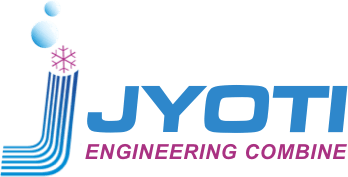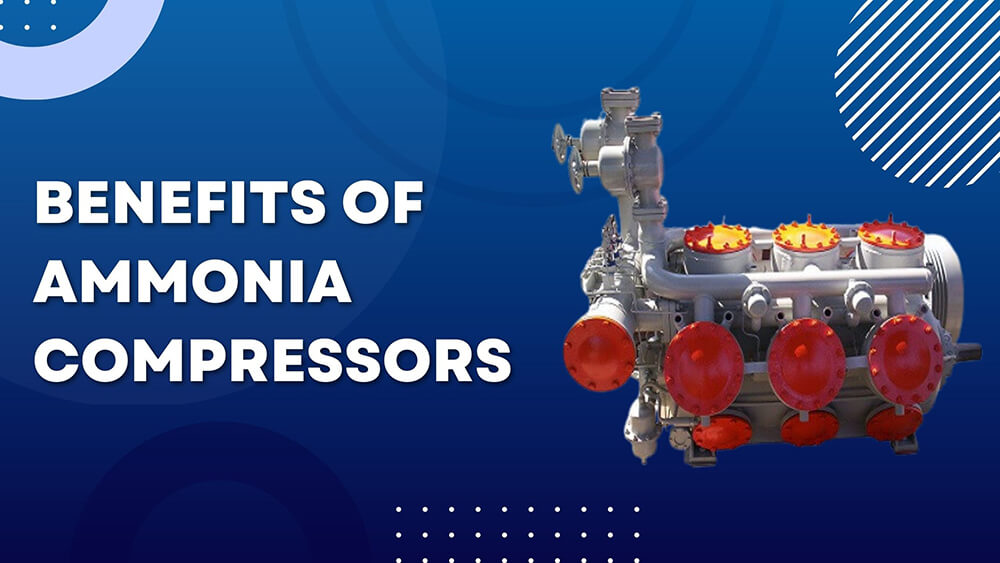Using ammonia compressors has several advantages. Ammonia is an extremely efficient refrigerant that can function in a wide temperature range and produces minimal noise.
Let’s find out what exactly is an Ammonia Compressor
A compressor that uses ammonia as a refrigerant is known as an ammonia compressor. For low to medium temperature applications, ammonia compressors are the most efficient. They use an isothermal compression method, which means that the temperature of the gas remains constant from the entrance to the output. This reduces compressor wear and tear as well as energy consumption. Ammonia compressors are also self-lubricating, therefore no separate lubrication system is required. Mycom ammonia compressors and Sabroe ammonia compressors are the leading brand names of ammonia compressors
Ammonia compressors are utilized in a wide range of industrial and commercial settings. They have a number of benefits over other types of compressors. The great efficiency of ammonia compressors is one of their advantages. They can attain an efficiency of up to 95%, as opposed to roughly 60% for standard electric motors. This increased efficiency results in decreased operational expenses for the end user. Furthermore, ammonia compressors often make less noise than other types of compressors. This is an important factor for facilities that must keep noise levels to a minimum.
Different kinds of Ammonia Compressors?
You must also pick which sort of compressor best matches your requirements. Ammonia compressors are classified into two types: rotary screw compressors and reciprocating compressors. The type of ammonia compressor you use will also be determined by the ammonia gas you are working with. Ammonia gas is classified into three types: anhydrous ammonia, compressed ammonia, and liquid ammonia. Anhydrous ammonia is a gas that has no water molecules, compressed ammonia is a compressed gas that includes water molecules, and liquid ammonia is a liquid that contains water molecules.
It is critical to examine the unique demands of your application when selecting an ammonia compressor. The amount of ammonia to compress, the needed pressure and flow rate, as well as the ambient temperature and humidity, are all important considerations.
Which Industries benefit from Ammonia Compressors?
Ammonia compressors are utilized in a range of sectors, including food & beverage, automotive, and chemical. Ammonia compressors are widely used in the food and beverage industries to cool food and drinks as well as to make ice cream and other frozen desserts. The high-pressure ammonia compressor is often utilized to provide the cooling capacity necessary for these applications. The employment of ammonia compressors helps to guarantee that food and drinks are kept and processed at the proper temperature, and that frozen desserts are consistently and of excellent quality.
Ammonia compressors are used to make automobile air conditioners in the automotive sector. Ammonia is compressed and chilled to a very low temperature in an ammonia compressor. This low-temperature ammonia is then utilized to cool the air conditioner in the automobile. Ammonia compressors are used in the chemical industry to create ammonia, nitrogen, and oxygen. These gasses are necessary for a variety of reasons, the most important of which is that they are employed in the production of fertilizer and other industrial products.
Ammonia compressors are an important element of the fertilizer manufacturing process. Fertilizer is made up of three basic components: nitrogen, phosphorus, and potassium. These elements are necessary for plant development and may be found in a variety of fertilizers.
How do you diagnose an Ammonia Compressor?
If your ammonia compressor isn’t working properly, there are a few things you may do to fix it. The first step is to pinpoint the cause of the issue. Different sorts of things can go wrong with an ammonia compressor, and each case necessitates a unique solution. Here are some of the most typical problems with ammonia compressors and how to remedy them.
The first thing to check if your ammonia compressor is not cooling properly is the refrigerant charge. Check that the compressor is properly charged with refrigerant and that all lines and connections are tight. If you are losing refrigerant, you must locate and repair any leaks. Leaks can happen in the compressor, condenser, or pipework.
JEC is the best option to go if you want a remanufactured Sabroe ammonia compressor or Mycom ammonia compressor of the highest calibre and without any flaws. In the industry of Sabroe compressor parts andMycom compressor parts, JEC has built a remarkable name and level of trust throughout its 35-year history. Additionally, JEC is also accredited by ICRA, ISO 9001:2015, and UGAC.
To place an order, dial +91 98210 20375 or +91 22 675 86605/06/07. Alternatively, you can email [email protected] or [email protected] or fill out the form on the website.


